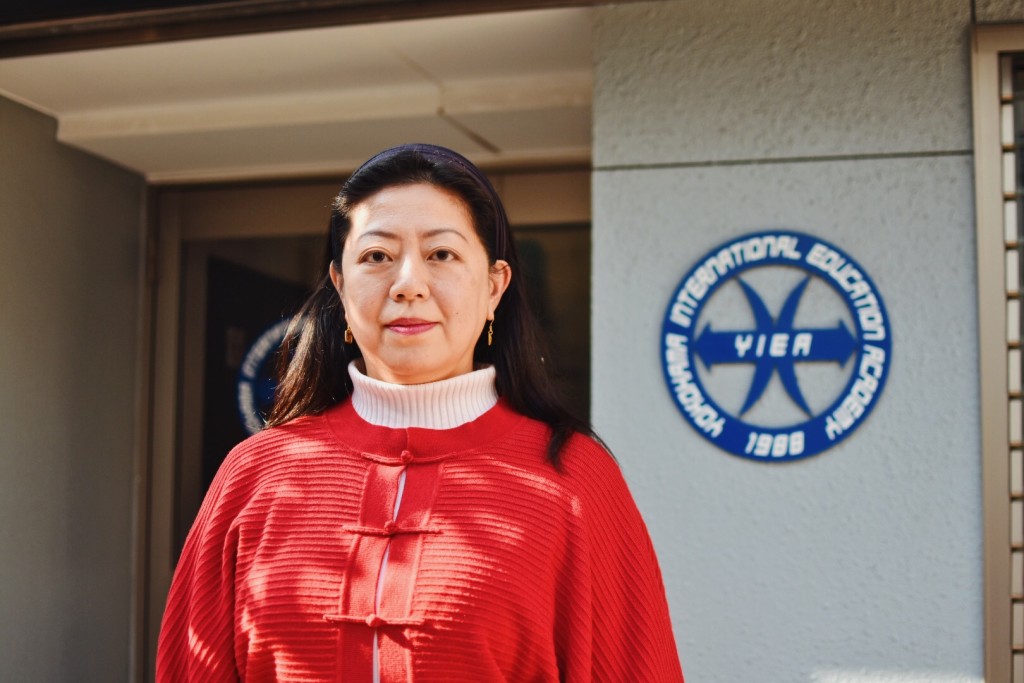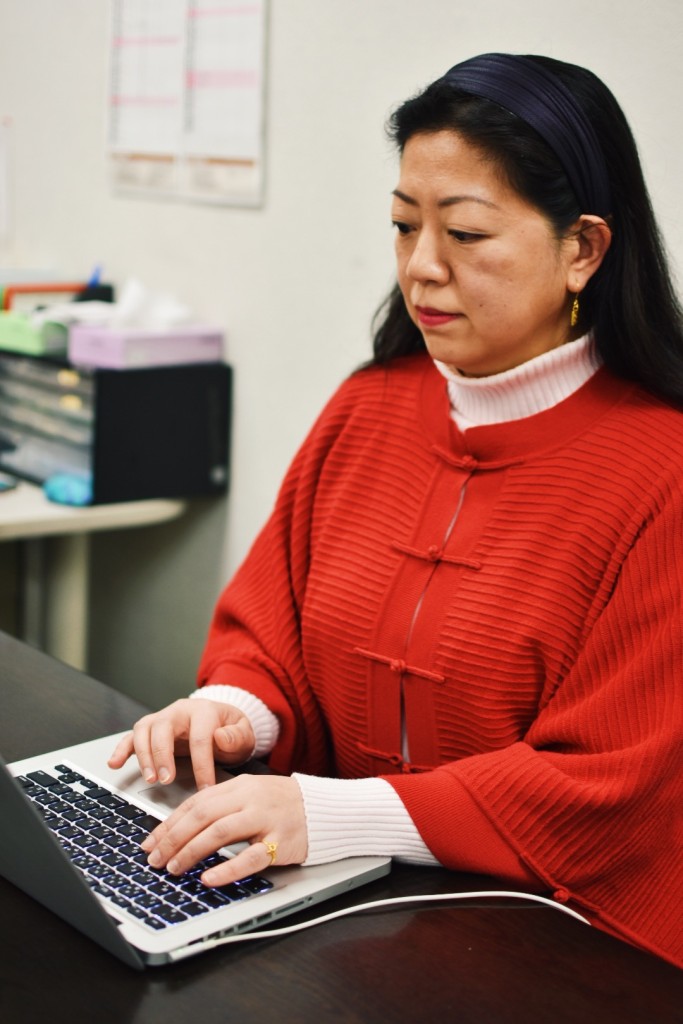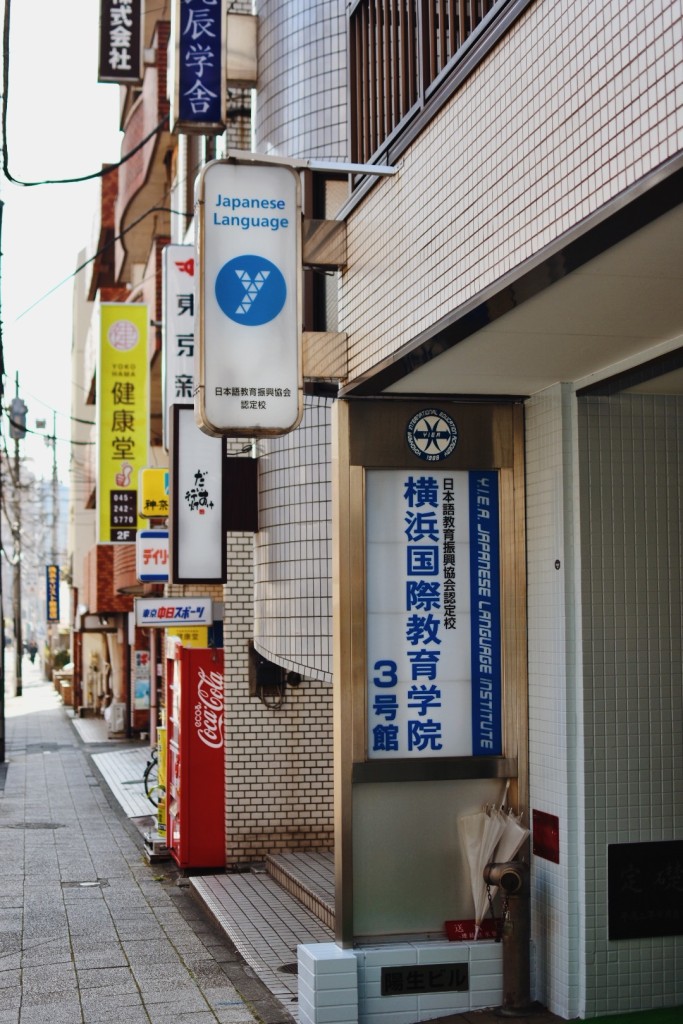Delving into an entirely new culture, especially one that is as unique as Japan’s, takes courage and effort. Visiting here is one thing, but in order to live here, learning Japanese is a must. Once the language barrier is gone, the experience of living in Japan can become far more rewarding and enjoyable. If you plan on studying and/or working in Yokohama and are looking for a Japanese school, look no further than YIEA (Yokohama International Education Academy). They offer a variety of intensive programs that cater to their students’ needs and desires, and have an impressive lineup of successful alumni. We had the privilege of interviewing YIEA’s deputy director Masaki Izumi whose mother was the founder of the school. Izumi gives us valuable insight into her background and her position as a woman in leadership.
What is your background?
I grew up in Naka-ku, Yokohama and attended Saint Maur International School. I later went on to Bryn Mawr College and the University of Pennsylvania in Philadelphia.
Was there anyone who encouraged you to get involved in education?
It was my mother who started this language school. In the late 1980s, a lot of cases involving students being swindled by dishonest schools made it into the news. My mother hoped to provide young people who want to come to Japan for a better future a reliable school, a place that will cherish their dreams and aspirations.
What is YIEA’s mission?
We are here to help students achieve their goals and realize their dreams. Some come with a specific goal in mind, some find their dreams here. The language itself is rarely the goal; for the vast majority of students, the language is a tool, a means for them to get somewhere else. We are here to ensure that they acquire the language skills they need and get a good head start to their next stage in life, whether it be going to a university or finding better employment.
Please share details about your role as Deputy Director.
I just direct traffic. Tons of work requiring various skills is involved in running a language school. I leave all these things to more capable hands. My job is to make sure everything runs smoothly and to anticipate any problems. The most important thing is to make sure no one, most of all myself, gets run over.
YIEA supports and offers a variety of courses for foreign students and even those looking to work long-term in Japan. What sort of changes/contributions do you hope your graduates will bring to Japanese society?
Foreign students will hopefully be the stimulant that Japan badly needs. Young people who are fluent in Japanese and have a good grasp of the Japanese culture are more likely to be accepted into the Japanese corporate community and Japanese society as a whole. They can stimulate changes in a non-threatening way. To be able to navigate multiple cultures is a great asset. I am hoping our graduates will be valued even more as more Japanese realize this.
What does education mean to you personally?
Education is not about information or knowledge. Yes, it is important that students learn all their lessons and pass their exams. What is more important is to be able to utilize language skills in a practical way. Even more important is that students realize that they can do things they have not imagined they could do before. When a timid talker successfully defended his position in a debate, when a student decided to face the exams instead of running back home, when a student found a pursuit that they can put their passion into–those are the moments where you can clearly see that they have grown beyond themselves and you are sure they will have a bright future if they never forget that feeling.
Why did you choose Yokohama for the school’s location?
Where else would you want a language school for foreign students? Yokohama is a vibrant international port city. The city opened its ports 150 years ago and since then foreign populations have made their homes here. I believe Yokohama can continuously assimilate the new and the good. On top of that, we have a beautiful sky. Our graduates who have moved away always tell me they miss Yokohama’s blue sky.
What has your experience been like working as a woman in a leadership position, and have you seen any changes in how working women have been perceived/treated over the years?
Language education is one of those fields where women constitute the majority so I don’t think I face as many challenges as other women who work in fields like law or finance. Of course, there is always gender bias. You just ignore it. Sometimes being quietly determined can get more things done than being overly forceful anyway.
Finally, please share any goals/aspirations you have for YIEA in the future.
We need to keep innovating. Our curriculum has just gone through a two-year overhaul. It is important that we remain sensitive to the changing needs of students and anticipate what they may want.




